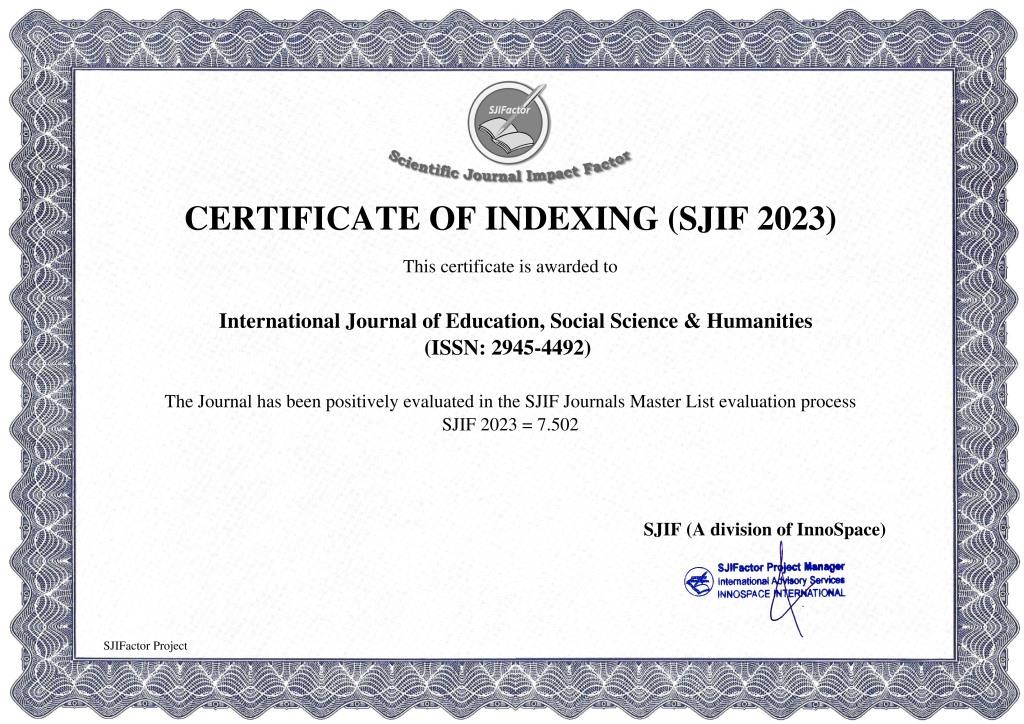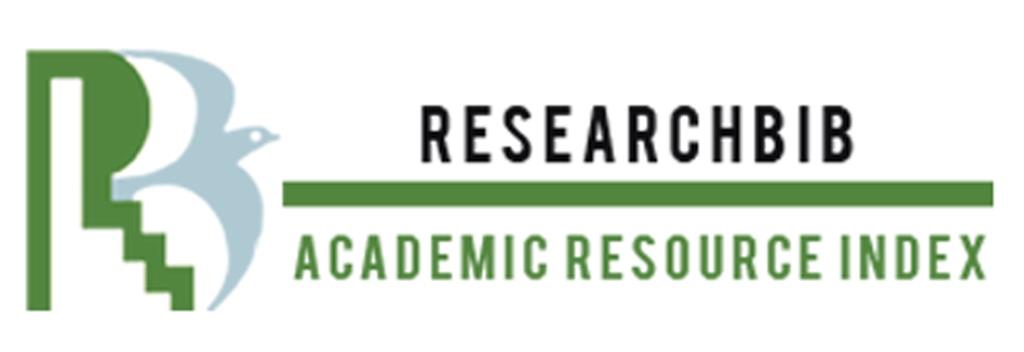TAʼLIMNI JARAYONLARIDA FOYDALANILAYOTGAN INTELLEKTUAL TIZIMLAR
Keywords:
taʼlimni boshqarish jarayonlari, LMS, aqlli taʼlim muhiti, intellektual tizimlarAbstract
Ushbu maqolada ta’lim jarayonida intellektual tizimlardan foydalanish zarurati va intellektual tizimlar xususiyatlari tavsiflandi. Intellektual muhit oʼquv ehtiyojlariga javob beruvchi vositalarni hamda talaba, oʼqituvchi munosabatini qoʼllab-quvvatlashi kerak. Intellektual ma’lumotlar bazalari so‘rov bo‘yicha mavjud ma’lumotlar bazasidan olinadigan ma’lumotlarni tanlash va to‘g‘riligini tekshirish imkoniyatlarini beradi. Shu jihatdan, maqolada Oliy ta’lim tizimi sifatini ta’minlashda intellektual tizimlar vazifalari bayon qilingan.
References
Oʼzbekiston Respublikasi Prezidentining “Kompyuterlashtirishni yanada rivojlantirish va axborot-kommunikatsiya texnologiyalarini joriy yetish to‘g‘risida”gi 30.05.2002 yildagi PF-3080 Farmoni. https://lex.uz/docs/-152470
Oʼzbekiston Respublikasi Prezidentining “Oliy ta’lim tizimini 2030-yilgacha rivojlantirish konsepsiyasini tasdiqlash toʼgʼrisida”gi 08.10.2019 yildagi PF-5847-sonli Farmoni.
O‘zbekiston Respublikasi Prezidentining “2022 — 2026-yillarga mo‘ljallangan yangi O‘zbekistonning taraqqiyot strategiyasi to‘g‘risida”gi 28.01.2022 yildagi PF-60-son Farmoni. https://lex.uz/uz/docs/-584106
Ў.Т. Хайтматов., А.Ф. Хакимов, О.Х. Азаматов, Р.А. Файзиев, М.К. Абдуллаев, ТГЭУ, “Иқтисодиёт ва инновацион технологиялар” илмий электрон журнали. № 4, июль-август, 2014 йил
Mannopova E.T. Intelligent information systems in improving the education management system in Uzbekistan. European Journal of Research and Reflection in Educational Sciences Vol. 8 No. 10, 2020 Part II
Hall, L., Hung, C., Hwang, C., Oyake, A., & Yin, J. (2001). COTS-based OO-component approach for software inter-operability and reuse (software systems engineering methodology). In Aerospace Conference, 2001, IEEE Proceedings. (Vol. 6, pp. 2871-2878). IEEE.
Thakral, S., & Sagar, S. (2014). Vinay. Reusability in Component Based Software Development-A Review. World Applied Sciences Journal, 31(12), 2068-2072
Spector, J. M. (2014). Conceptualizing the emerging field of smart learning environments. Smart learning environments, 1(1), 2.
The Smart Learning Management System (SLMS). Conference: The Free and Open Source Software Conference (FOSSC Oman 2019). February 2019.
Imed Bouchrika. Learning Management Systems for Education: Features, Benefits, and Challenges. Learning Management Systems for Education: Features, Benefits, and Challenges | Research.com.
Yawen Yang. Design and Implementation of Intelligent Learning System Based on Big Data and Artificial Intelligence. Front Psychol. 2021; 12: 726978. Published online 2021 Nov 11. doi: 10.3389/fpsyg.2021.726978.
D’Isanto and F. D’Elia, “Body, movement, and outdoor education in pre-school during the covid-19 pandemic: perceptions of teachers,” Journal of Physical Education and Sport, vol. 21, pp. 709–713, 2021.
Grawemeyer B, Gutierrez-Santos S, Holmes W, Mavrikis M, Rummel N, Mazziotti C, Janning R. Talk, tutor, explore, learn: intelligent tutoring and exploration for robust learning. Madrid: AIED; 2015. p. 2015.
Hongmei Zhu. Analysis of University Education Management Based on
Artificial Intelligence. Hindawi Security and Communication Networks Volume 2022, Article ID 8132523, 11 pages https://doi.org/10.1155/2022/8132523
Gocen, Aydemir. Artificial Intelligence in Education and Schools.Research on Education and Media. Vol. 12, N. 1, Year 2020 - ISSN: 2037-0830
Интеллектуальные системы / А.В. Остроух. – Красноярск: Научно-инновационный центр, 2015. – 110 с.
W. M. Al-Rahmi et al.: Use of E-Learning by University Students in Malaysian Higher Educational Institutions














